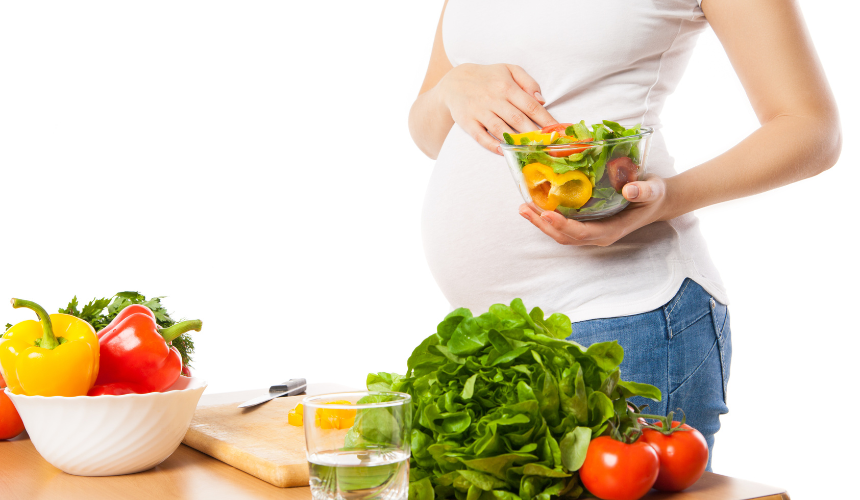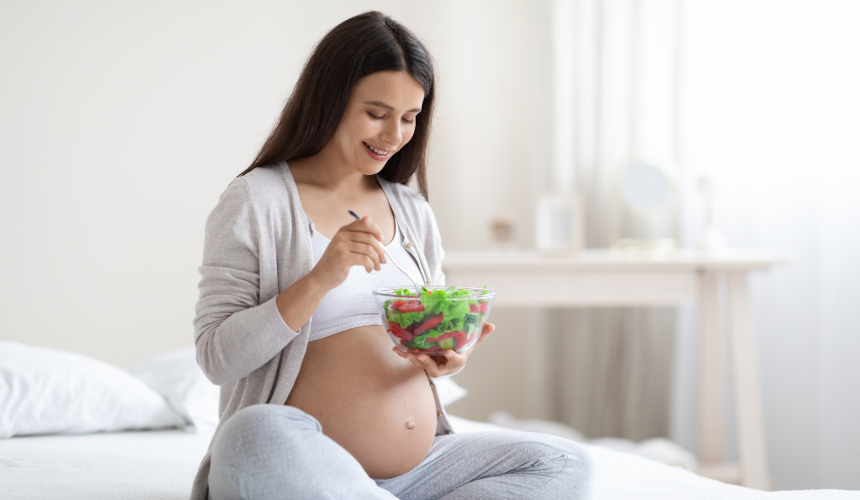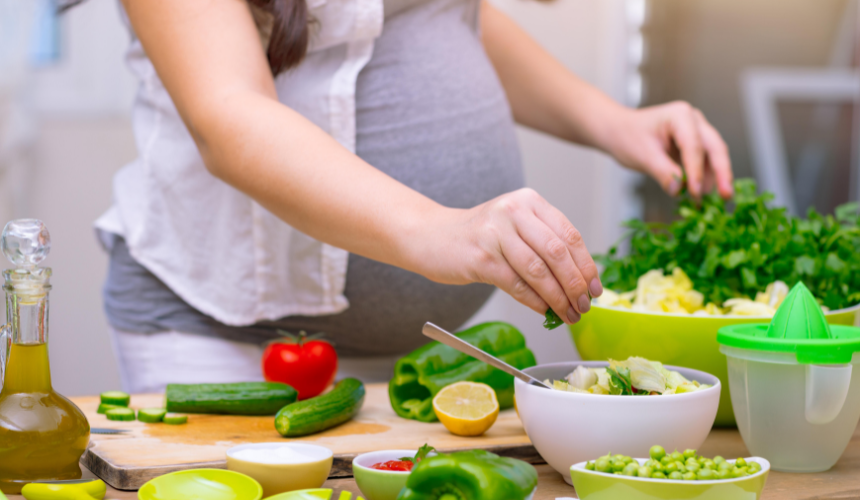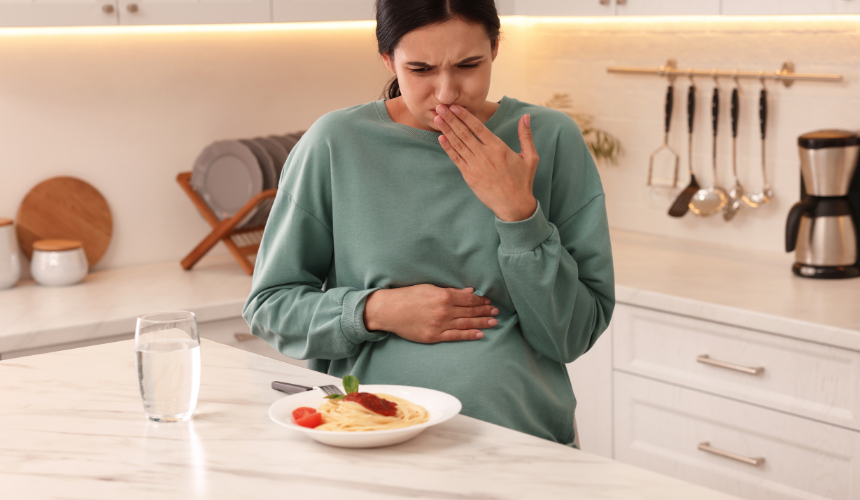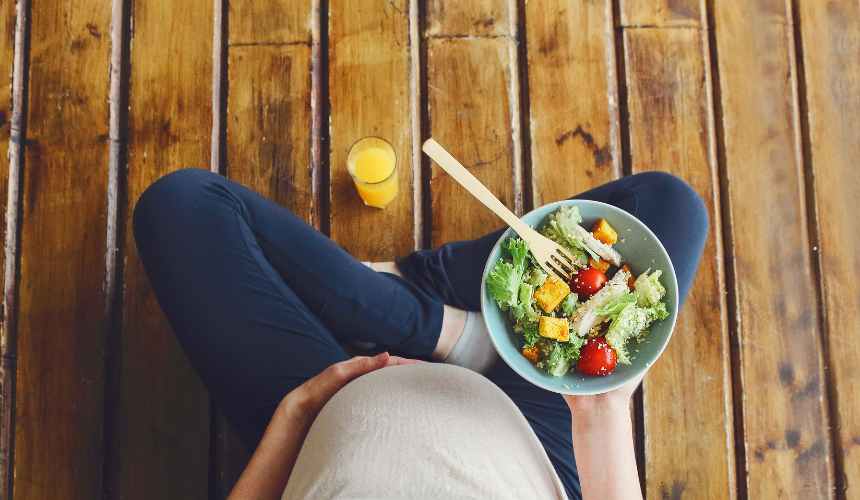Author: Dr. Tanveer Aujla MBBS, MS
Consultant: Obstetrician & Gynaecologist Motherhood Hospital, Noida
Hello, expecting mothers! Dr. Tanveer Aujla here, from Motherhood Hospital, ready to guide you on your journey to a healthy and joyful pregnancy. One of the most common questions we receive is, “What should I eat and avoid during pregnancy?” Today, let’s explore this topic and provide some valuable insights.
Eating Right for You and Your Baby:
During pregnancy, proper nutrition becomes even more crucial as you nourish not only yourself but also your growing baby. Here are some essential guidelines to help you make informed choices:
Load Up on Fruits and Vegetables:
Include a variety of colorful fruits and vegetables in your diet.
They provide essential vitamins, minerals, and fiber to support your overall health and the development of your baby.
Choose Whole Grains:
Opt for whole grains like whole wheat, oats, and brown rice.
They are rich in nutrients and fiber, promoting healthy digestion and providing sustained energy.

Protein-Rich Foods:
Incorporate lean proteins such as poultry, fish, beans, lentils, and tofu into your meals.
Protein is vital for the growth and development of your baby’s tissues.
Healthy Fats:
Include sources of healthy fats like avocados, nuts, seeds, and olive oil in moderation.
These fats are essential for the development of your baby’s brain and nervous system.
Calcium and Vitamin D:
Consume calcium-rich foods like dairy products, fortified plant-based milk, and leafy greens.
Pair them with vitamin D sources like sunlight exposure or fortified foods to aid in calcium absorption.
Stay Hydrated:
Drink plenty of water throughout the day to stay properly hydrated.
Dehydration can lead to complications, so aim for at least 8-10 glasses of water daily.
Foods to avoid during pregnancy:
While most foods are safe during pregnancy, a few should be avoided or consumed in moderation to minimize potential risks:
Raw or Undercooked Foods:
Avoid raw or undercooked meats, eggs, and seafood to prevent the risk of foodborne illnesses.
Certain Seafood:
Limit intake of high-mercury fish like shark, swordfish, king mackerel, and tilefish. Instead, choose low-mercury options like salmon, trout, and shrimp.
Unpasteurized Dairy and Cheese:
Steer clear of unpasteurized milk, cheese, and dairy products as they may contain harmful bacteria.
Caffeine and Alcohol:
Limit your caffeine intake and avoid alcohol completely, as they can adversely affect your baby’s development.
Processed and Junk Foods:
Minimize consumption of processed and junk foods high in unhealthy fats, sugars, and sodium.
Conclusion:
Maintaining a well-balanced and nutritious diet is essential for a healthy pregnancy. By following these guidelines and making informed food choices, you can provide the optimal nourishment your baby needs for growth and development.
Remember, every pregnancy is unique, so it’s essential to consult with your healthcare provider for personalized dietary recommendations based on your specific needs and any underlying medical conditions.
At Motherhood Hospitals, we have a team of experienced supers specialists backed by the latest infrastructure and facilities. We have the best gynaecologist in Noida. We are experts in handling complex deliveries, gynaecological, and other surgeries including a range of laparoscopic surgeries.
Do take an appointment with the best maternity hospital in Noida at a centre closest to you. Meet with our doctors who will carry out the required investigations, diagnose the issue and recommend the most appropriate treatment, enabling you to lead an active life.
If you wish to get in touch with Dr. Tanveer Aujla, please book your appointment here.


 Toll Free Number
Toll Free Number


















